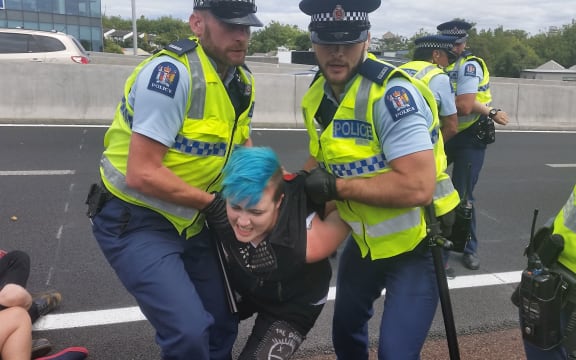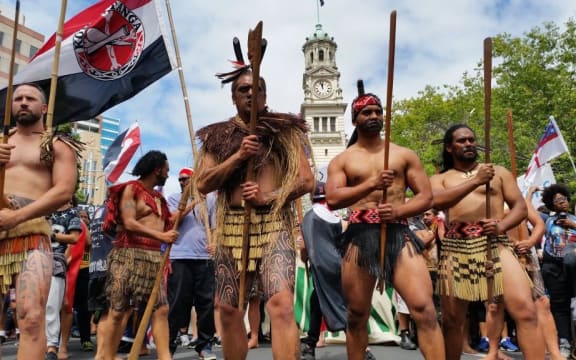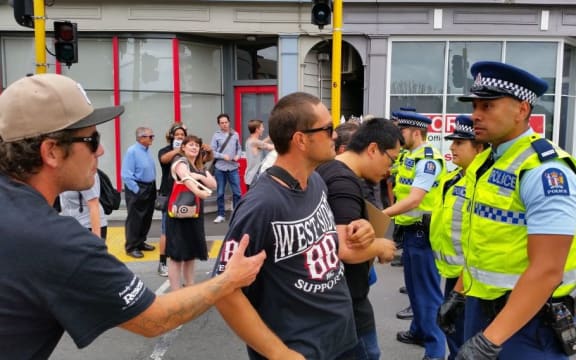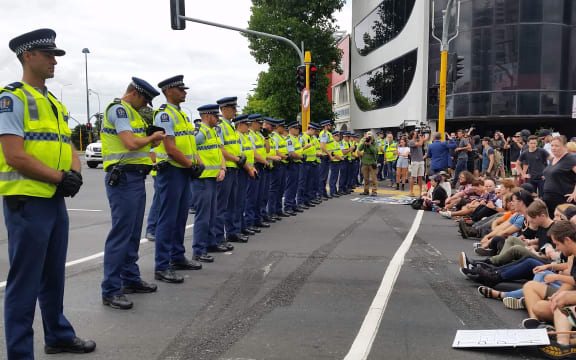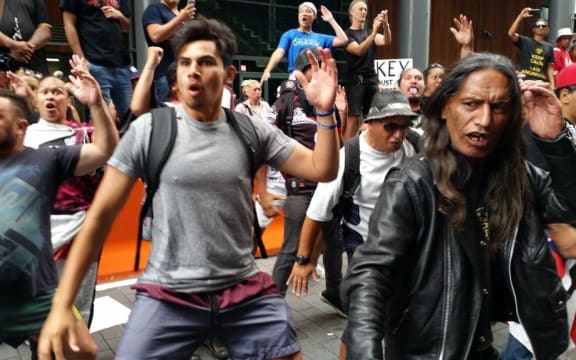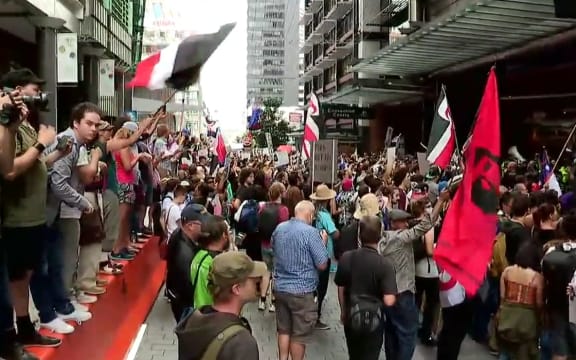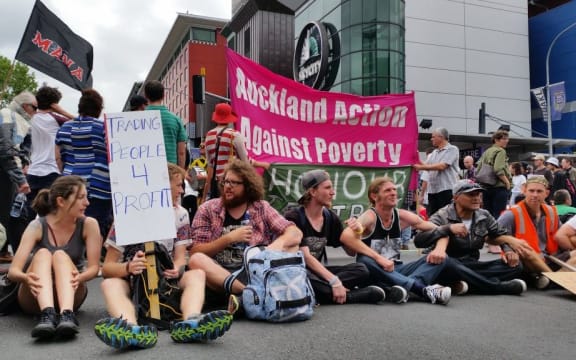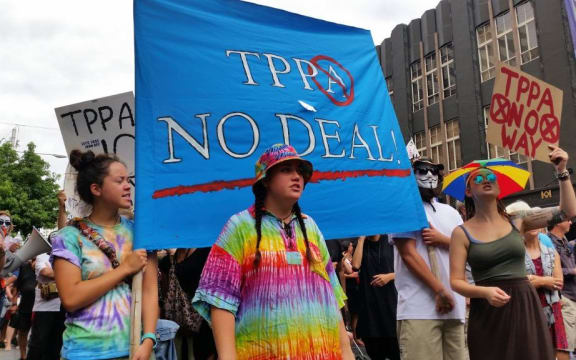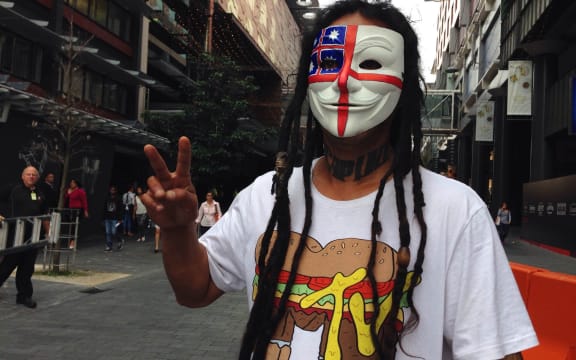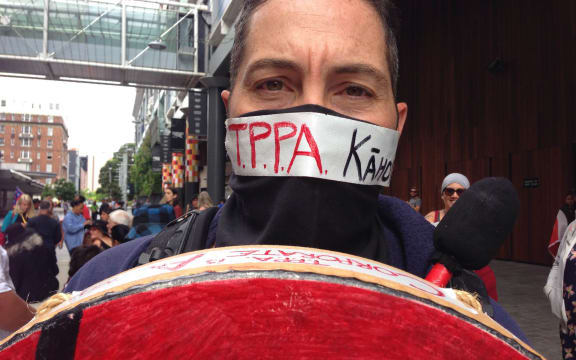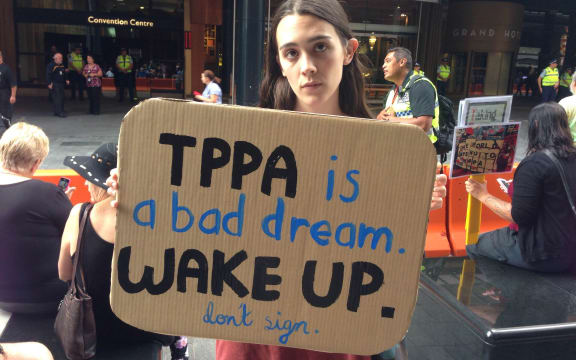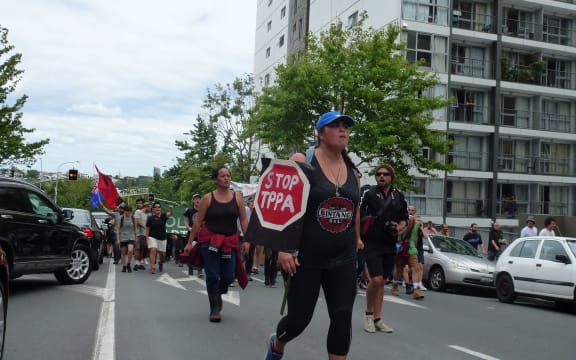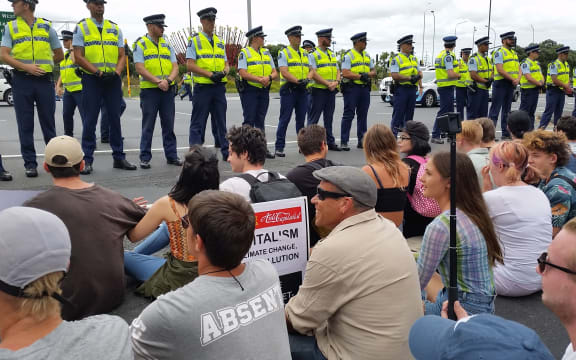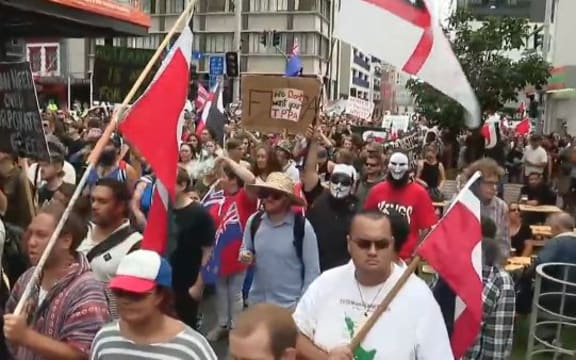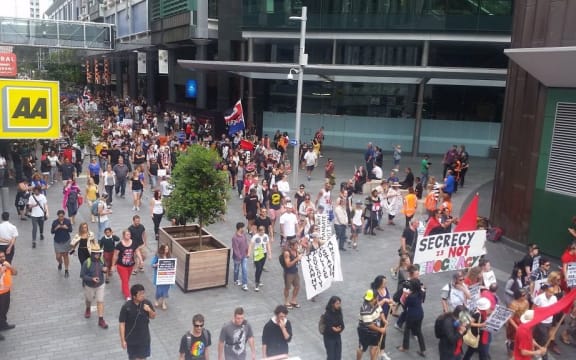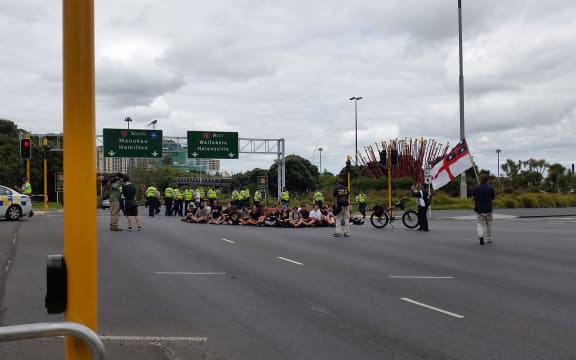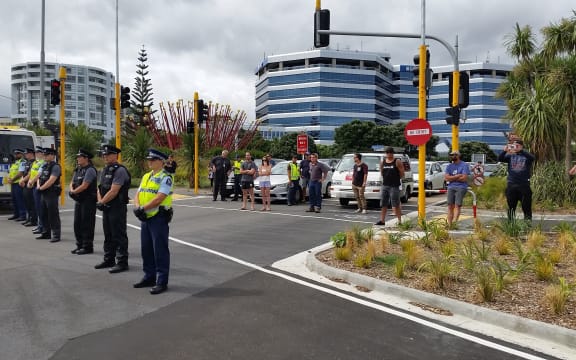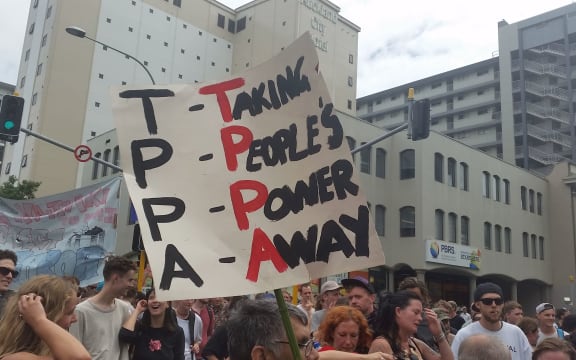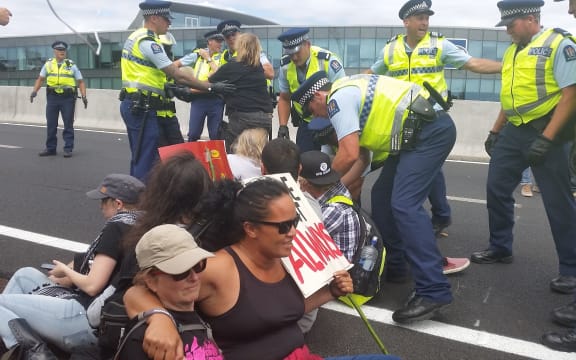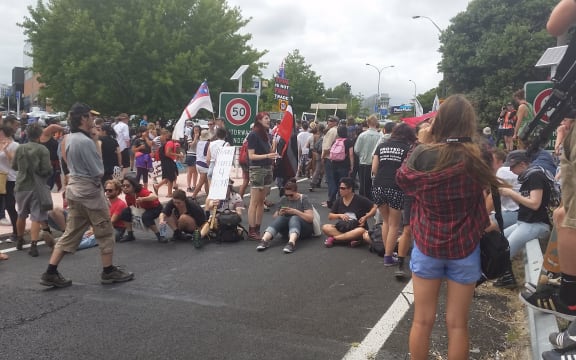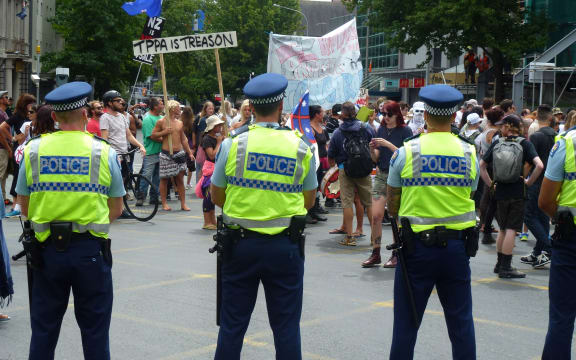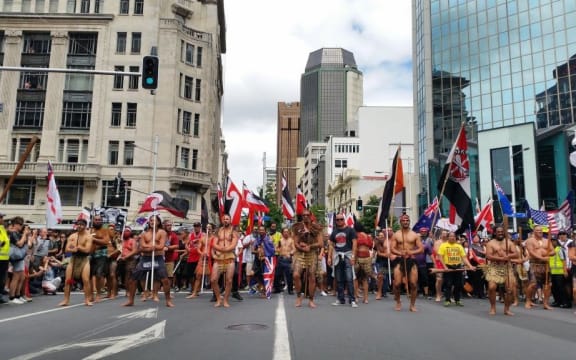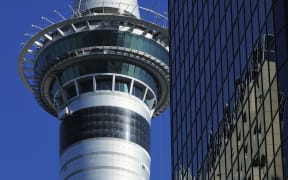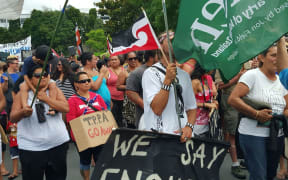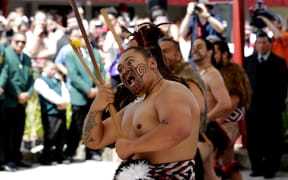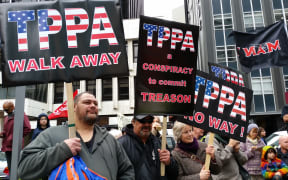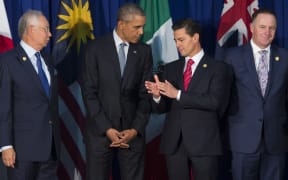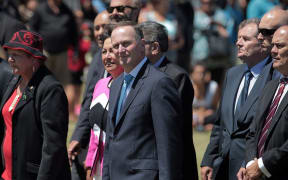Prime Minister John Key believes Aucklanders will be disappointed in the anti-TPP protests which blocked the motorway and clogged streets today.
Watch John Campbell at the protests:
Ministers from 12 countries signed the trade deal at the official signing at Auckland's SkyCity this morning, after which Mr Key said New Zealand was proud to be involved throughout the process.
"TPP liberalises trade, and makes it easier to do trade across the region. That's overwhelmingly in the best interest of our countries and our citizens."
See how the day unfolded here:
He later told reporters he believed Aucklanders would be "pretty disappointed and a little bit confused" as to why people were protesting against a deal which opened market access for New Zealand.
"I think a whole lot of Aucklanders will just see that in the category of "rent a protest," he said.
"If people have a serious beef to make they should actually have a look at the commentary out there, because the commentary defeats their arguments very strongly.
"Some of those people are absolutely 'rent a protest', and they turn up at any particular thing. It won't matter whether it's mixed ownership model, whether it's mining. Some of them were holding up signs for 1080.
"These are people right across the board. You're always going to get this, as a bit of a cause celebre for the left".
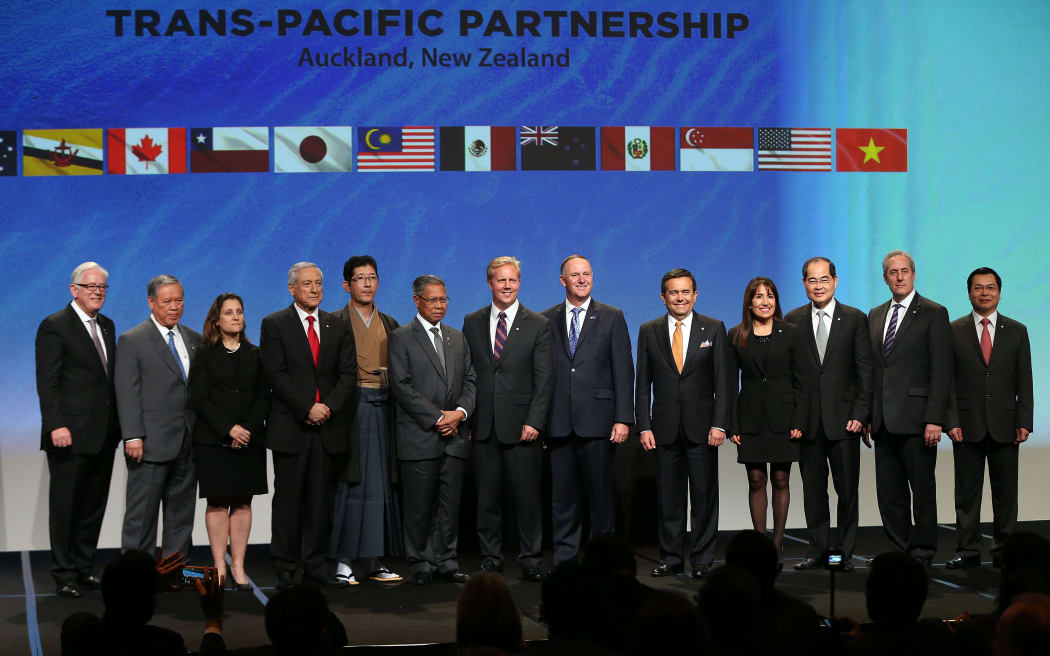
Prime Minister John Key, eighth from left, with the ministers from the 12 TPP countries. Photo: AFP
Traffic moving
All traffic was tonight moving normally around the Auckland region after the day of protest.
A large protest group had started massing at Aotea Square this morning and set out through the streets to SkyCity at about 10am. Several hundred ended up oustide the venue guarded by dozens of police officers.
Smaller, roving groups of protesters staged sit-ins at motorway access points, disrupting traffic in the Auckland CBD.
A number sat down at the end of Hobson Street, blocking entrances and exits to the southern and north-western motorway. Fanshawe Street and Cook Street access motorway points were also blocked.
About 30 to 40 police were at the site of the motorway protests, and warned demonstrators, who then moved on.
At one stage police had to step in and remove some protesters when about 100 people ran on to part of a central city motorway.
Superintendent Richard Chambers said police were disappointed with demonstrators who blocked motorways during the protest, with several hundred protesters snarled up traffic for hours when they sat down in front of central city on-ramps and exits.
Mr Chambers said there had been no arrests among the thousands who participated in the protests but that the small group who blocked traffic put themselves and others in danger, especially those who ran into the road to stop cars.
He said he was comfortable with the actions of one police officer who was photographed pulling a protester by her hair, saying police were trying to stop her from running into traffic.
Shortly after midday the main protest march left from Aotea Square, with an estimated 2000 people walking down Queen Street towards Britomart.
Anti-TPP chants could be heard echoing around the city, as well as horns honking in support.
A protest organiser, Hone Harawira, said there was still a message to send, despite the TPP agreement being signed.
"We don't accept it. We don't like the fact that you didn't get to see it, I didn't get to see it, our children didn't get to see it before they signed it off," he said.
"Even if it's being signed today, it won't be ratified until it's ratified by every government in the TPPA and if it isn't, it's thrown out anyway, so the fight continues today and forever."
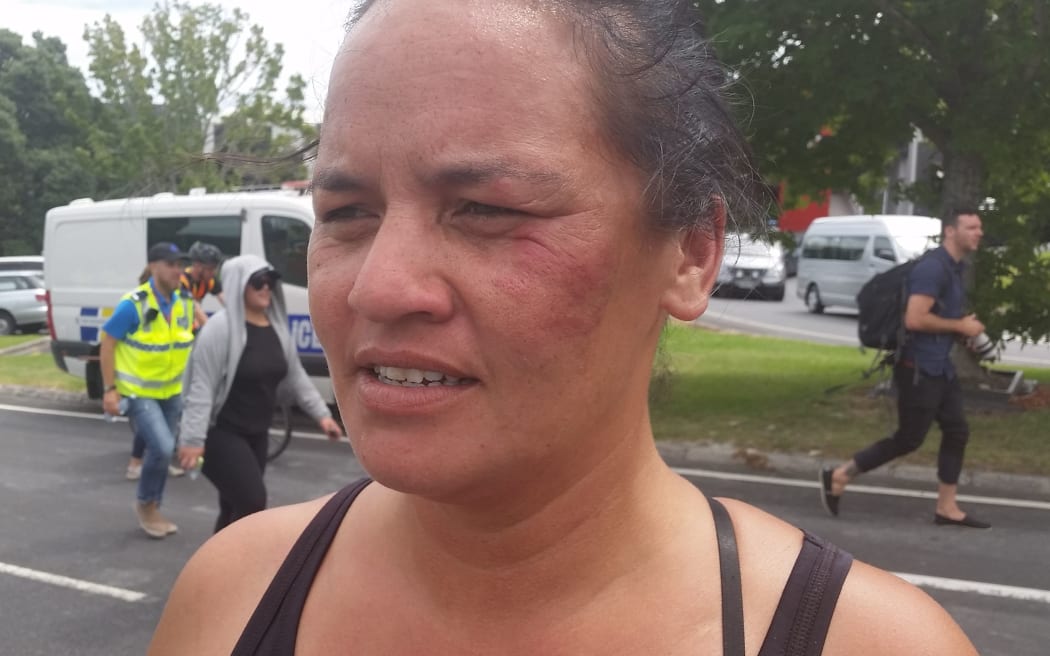
Bonnie Cook Photo: RNZ
Northland protester Bonnie Cook said she was shoved over a barrier and had her head stood on by police officers.
Ms Cook was part of a dozen or so protesters who staged a sit-in on a key motorway link and were physically removed by police officers.
"They just jumped on top of me, six of them. One of them stood on top of my head," she said.
Fellow protester Maraea travelled from Whanganui with her daughter and grandson.
She said the trade deal would affect generations of New Zealanders.
"I came for my children, my grandchildren and all the ones who are coming after that.
"It's all about them. It's not about anything else. It stinks. It sucks."
The traditional hikoi which makes its way from Cape Reinga to Waitangi each February made a detour through Auckland to take part in the protests. Organiser Reuben Taipari said he wanted to make sure people were safe, but said they needed to be allowed to voice their anger.
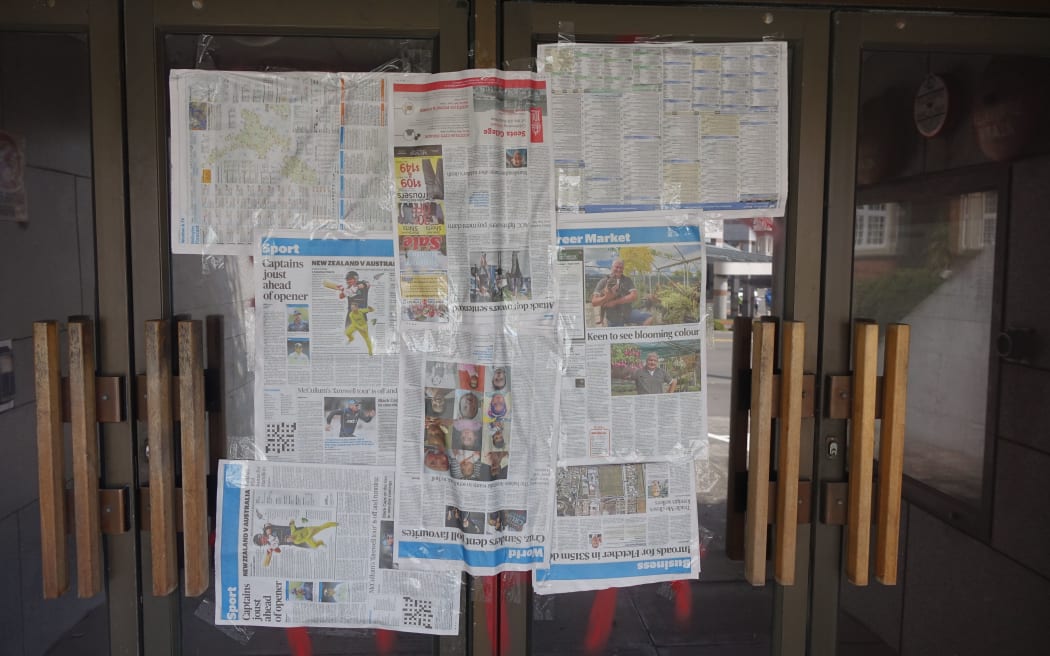
Anti-TPP graffiti at Parliament, which security officials covered up with newspaper. Photo: RNZ / Mei Heron
Protests took place in other centres, with graffiti sprayed on doors at Parliament in Wellington, followed by a turn-out of about 250 people at the Cenotaph at midday.
Labour Party MP Grant Robertson and the Green Party MP Kennedy Graham were among those who spoke to the crowd gathered under the hot sun.
At the end of the speeches, hundreds faced the Beehive and performed the Ka Mate haka.
In Christchurch more than 100 people turned out to protest outside the city's council offices.
The group which organised the protest, Its Our Future Christchurch, said Christchurch City Council needed to take urgent action to protect itself from the TPP.
Protesters also marched in Gisborne.
Solidarity from gisborne #TPPANoWay #TPPA pic.twitter.com/s8Oo4AaRIF
— Stuart (@moriartypatten) February 3, 2016
Low-key welcome
At the signing ceremony itself, there was a low key welcome for overseas ministers, with only three people from Ngati Whatua performing the greeting.
Many within the iwi oppose the TPP deal and had already made it clear they were boycotting the powhiri.
Trade Minister Todd McClay said the signing was a momentous occasion for all countries in the trade pact.
"The 12 countries representing 800 million people, almost 40 percent of the world GDP, to come together to focus on an agreement that will provide benefits to all of our citizens is a significant achievement."
Opponents of the agreement maintain it will undermine New Zealand's sovereignty, and is more far-reaching than any previous trade deal the country has signed.
Prominent business leaders argue the deal will boost exports, growth and jobs and say it is incomprehensible people are protesting against it.
The TPP agreement to cut tariffs, improve access to markets, and set common ground on labour and environmental standards and intellectual property protections was finally reached in October.
After the formal signing countries have two years to ratify the agreement and pass domestic legislation to enable it.
